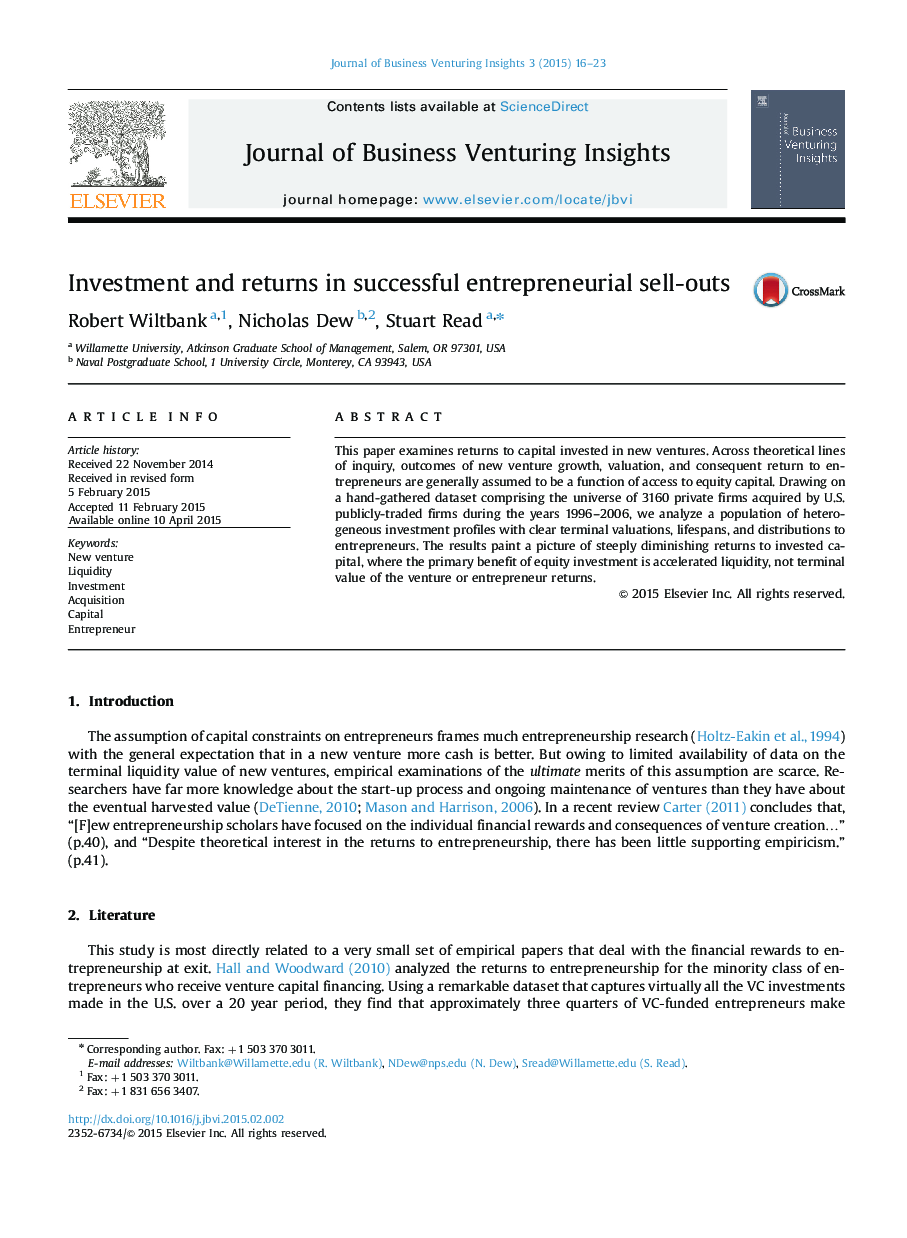| Article ID | Journal | Published Year | Pages | File Type |
|---|---|---|---|---|
| 1019935 | Journal of Business Venturing Insights | 2015 | 8 Pages |
•We test the startup capital constraint assumption with a hand-gathered dataset comprising the private firms acquired by U.S. publicly-traded firms during the years 1996–2006.•33% of Ventures in our sample were successfully harvested through a private sale to a public firm on investments of $50,000 or less in total paid in capital.•We find that new venture growth is positively related to invested capital.•We also find steeply diminishing returns to invested capital on terminal value of the venture and entrepreneur returns.
This paper examines returns to capital invested in new ventures. Across theoretical lines of inquiry, outcomes of new venture growth, valuation, and consequent return to entrepreneurs are generally assumed to be a function of access to equity capital. Drawing on a hand-gathered dataset comprising the universe of 3160 private firms acquired by U.S. publicly-traded firms during the years 1996–2006, we analyze a population of heterogeneous investment profiles with clear terminal valuations, lifespans, and distributions to entrepreneurs. The results paint a picture of steeply diminishing returns to invested capital, where the primary benefit of equity investment is accelerated liquidity, not terminal value of the venture or entrepreneur returns.
